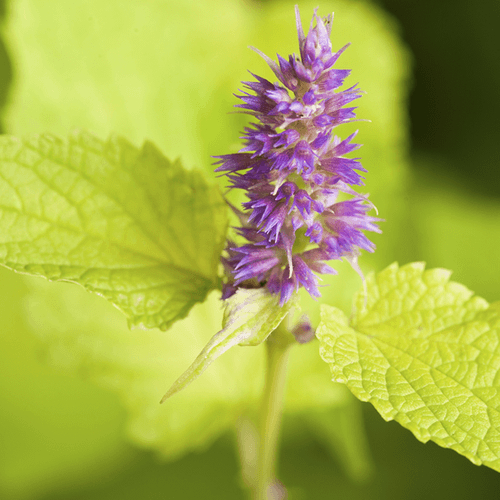
Hyssop
Scientific names: Hyssopus officinalis
Family: Lamiaceae/Labiatae
Alternative names: Herbe de Joseph, Herbe Sacrée, Herbe Sainte, Hiope, Hisopo, Hissopo, Hysope, Hysope Officinale, Jufa, Rabo De Gato, Ysop
Actions: Anti-hyperlipidemia, Anti-inflammatory, Anti-proliferative, Antiviral, Cardiovascular, Diabetes mellitus type 1, Expectorant, Gall bladder
Background
Hyssop (Hyssopus officinalis) is a flowering plant native to Europe and the Middle East. The parts that grow above ground are used as medicine.
Hyssop contains chemicals that might help reduce swelling and fight certain viruses.
People sometimes use hyssop for bruises, cough, sore throat, and many other conditions but there is no good scientific evidence to support these uses.
Hyssop contains chemicals that might help reduce swelling and fight certain viruses.
People sometimes use hyssop for bruises, cough, sore throat, and many other conditions but there is no good scientific evidence to support these uses.
Safety Safety definitions
When taken by mouth: Hyssop is commonly consumed in foods. But there isn't enough reliable information to know if using hyssop or hyssop extract in larger amounts as medicine is safe or what the side effects might be. Hyssop oil is possibly unsafe when used in larger amounts as medicine. It may cause serious side effects.
Breast-feeding: There isn't enough reliable information to know if hyssop is safe to use when breast-feeding. Stay on the safe side and avoid use.
Special Precautions & Warnings:
Pregnancy: Hyssop is likely unsafe when taken by mouth during pregnancy. It might cause the uterus to contract or start menstruation.Breast-feeding: There isn't enough reliable information to know if hyssop is safe to use when breast-feeding. Stay on the safe side and avoid use.
Effectiveness
Effective Effectiveness definitions
There is interest in using hyssop for a number of purposes, but there isn't enough reliable information to say whether it might be helpful.
Dosing & administration
There isn't enough reliable information to know what an appropriate dose of hyssop might be. Keep in mind that natural products are not always necessarily safe and dosages can be important. Be sure to follow relevant directions on product labels and consult a healthcare professional before using.
Interactions with pharmaceuticals
It is not known if Hyssop interacts with any medicines. Before taking Hyssop, talk with your healthcare professional if you take any medications.
Interactions with herbs & supplements
There are no known interactions with herbs and supplements.
Interactions with foods
There are no known interactions with foods.
vital.ly has licensed monographs from TRC Healthcare.
This monograph was last reviewed on 17/12/2024 11:00:00 and last updated on 09/10/2020 22:54:53. Monographs are reviewed and/or updated multiple times per month and at least once per year.
Natural Medicines disclaims any responsibility related to medical consequences of using any medical product. Effort is made to ensure that the information contained in this monograph is accurate at the time it was published. Consumers and medical professionals who consult this monograph are cautioned that any medical or product related decision is the sole responsibility of the consumer and/or the health care professional. A legal License Agreement sets limitations on downloading, storing, or printing content from this Database. No reproduction of this monograph or any content from this Database is permitted without written permission from the publisher. It is unlawful to download, store, or distribute content from this site.


